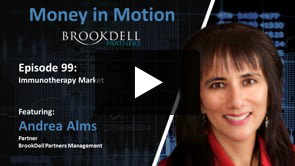Cannabis Investment Dashboard:
Top Cannabis Investment News, Member Posts, Cannabis Investment Daily Indices and more!
-
According to a substance use study, alcohol use disorder accounts for a majority of substance use disorder cases in the U.S., with 14.5 million or 5.3 percent of Americans aged 12 or older meeting diagnostic criteria for an alcohol use disorder in 2017 (AUD). It is a significant medical and social problem in American society, accounting for 88,000 deaths per year and more than $250 billion in annual costs. Alcohol misuse is also implicated in cancer, liver disease, and heart disease.
There are just four medications approved by the Food and Drug Administration (FDA) for the treatment of AUD: disulfiram, acamprosate, oral naltrexone, and injectable naltrexone. One is very old (disulfiram was approved in 1951), most are expensive (injectable naltrexone costs $1,100-$1,200 per monthly dose), and all have limited to moderate efficacy, according to a study.
Clearly, there is a need for something new, something better, to treat alcoholism. Over the last few years, early speculation about psychedelic therapy for alcoholism has turned into progress to find out how to use psychedelics to not only treat alcoholism but perhaps even cure it.
One of the first studies to find out how psilocybin can treat alcoholism was in 2015, which was a proof-of-concept clinical trial that showed promising results.
-
In 2019, researchers at Johns Hopkins University conducted an anonymous online survey of 343 people (mostly white males) with up to seven years of AUD who reported quitting entirely—or reported a significant reduction—in their use of alcohol following psychedelic use in non-clinical settings. After the psychedelic experience, 83 percent no longer met the criteria of being an alcoholic.
Then there is the pilot trial underway since February 2021, which is expected to be completed in July, designed to test a strategy for optimizing set and setting for psilocybin-assisted therapy of alcohol use disorder, initiated because results suggested that patients with AUD may be less likely to have a mystical experience with standard doses of psilocybin.
Participants in the pilot trial will view nature-themed video programs during the preparation session and during the ascent phase of the psilocybin experience that researchers believe will help improve outcomes of psychedelic-assisted therapy without the need for higher psilocybin doses. It is sponsored by Saint John’s Cancer Institute in Santa Monica, California.
Another study by Johns Hopkins University, beginning in April 2021, will look at whether a single high (25 mg) oral dose of psilocybin will lead to reductions in depressive symptoms and the amount of drinking compared to placebo in patients with both major depressive disorder and AUD.
But it’s not just psilocybin. Awakn Life Sciences (OTC: AWKNF), a biotechnology company researching, developing, and commercializing therapeutics to treat addiction with a near-term focus on AUD is using ketamine for treating alcoholism, is heading into its Phase III trial, generally the last step to FDA approval. The company is also working with MDMA for treating alcoholism.
And scientists are returning to examine how LSD can curb alcoholism, or even stop alcoholism, after work in the 1960s was curtailed when LSD was criminalized.
-
During the 1950s and 1960s, the popularity of psychedelics as a treatment for various conditions was soaring, with more than 40,000 people being administered LSD between 1950 and 1965.
One of those “experiencers” was the co-founder of Alcoholics Anonymous (AA), Bill Wilson, who promoted the use of LSD to treat alcoholism in the late 1950s and early 1960s. He reportedly believed that LSD, by mimicking insanity, could help alcoholics achieve a central tenet of the twelve-step program proposed by AA. It was a matter of finding “a power greater than ourselves” that “could restore us to sanity.”
Other psychedelics being tried for alcoholism include ibogaine. The first controlled clinical trial studying ibogaine for treating alcoholism is currently underway at the University of Sao Paulo, Brazil.
Researchers are also diving deeper into how ayahuasca can stop alcoholism—with the caveat that it isn’t necessarily about the psychedelic substance being used, but the “fluid, adaptable forms of caregiving” that play a key role in the success of addiction recovery with any psychedelic substance, according to one study. “Feeling part of a community has an important therapeutic potential,” the study found.
Psychedelics Could be a Real Cure for Alcoholism on Green Market Report.
Today's Cannabis Investment Headlines:
Access Over 250K+ Industry Headlines, Posts and Updates
Join AlphaMaven
The Premier Alternative Investment
Research and Due Diligence Platform for Investors
Free Membership for Qualified Investors and Industry Participants
- Easily Customize Content to Match Your Investment Preferences
- Breaking News 24/7/365
- Daily Newsletter & Indices
- Alternative Investment Listings & LeaderBoards
- Industry Research, Due Diligence, Videos, Webinars, Events, Press Releases, Market Commentary, Newsletters, Fact Sheets, Presentations, Investment Mandates, Video PitchBooks & More!
- Company Directory
- Contact Directory
- Member Posts & Publications
- Alpha University Video Series to Expand Investor Knowledge
- AUM Accelerator Program (designed for investment managers)
- Over 450K+ Industry Headlines, Posts and Updates











